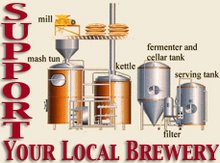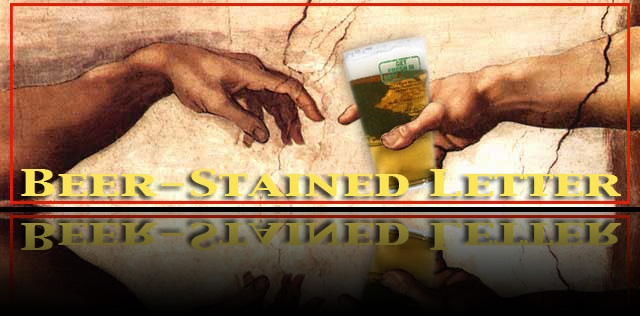Time to retire the nano label
Shakespeare famously mused about what's in a name, in flowery Elizabethan prose, suggesting that a name is merely packaging, not contents.
Given that, it's probably apt to send the descriptor nanobrewery packing. It's a small point, but one worth making.
Sure, the label has served a short-term purpose, speaking to a growing craft beer industry circumstance. Lots of folks have been jumping into commercial brewing via the very small scale, not because they're so enamored with their brewing sculptures that to part with them would be sweet sorrow when they began making beer for sale.
Rather, the driving force has been the fact that start-up costs are more attractive to get licensed making 1 or 2 barrels of beer at a time – more affordable steel, more affordable building.
But then we're accustomed to labels.
Microbrew used to be beer-speak as much for "I don't drink Bud any more" as it was to describe the approach for making the beer that some of us older drinkers were giving up Bud for.
And lest we forget, yesteryear's micros came in varying sizes.
Bell's Brewery in Michigan (alas, not distributed here in New Jersey, but in Pennsylvania by the case) started on a half-barrel set-up almost 30 years ago. Bell's has come quite a long way, now brewing almost 1,000 times its first-year production of 135 barrels.
Climax Brewing here in New Jersey started at 4 barrels, small – by two-thirds or more – compared with several other craft breweries that launched in the Garden State around the same time. But Climax has ably grown, and founder Dave Hoffmann has more growth in store for his Roselle Park brewery.
So therein lies Rub No. 1.
Brewers who start very small don't do so to stay very small. Sounds obvious, but it seems like that point gets lost in the nomenclature shuffle, as if nanos will be nanos. It's a safe bet they intend to grow as large and quickly as their successes will provide. Success meaning people drinking the beer.
Which brings up Rub No. 2, what Shakespeare said, contents vs. package.
There is, and will be, good beer coming from breweries that make 1 barrel at a time, just like there is from breweries making 10 or 20 times that.
And you can judge that in ways big and small, by the pint in fact.
So bye-bye nano. Big of you to move on.














2 comments:
I always took "nano" to in fact imply that the owner had no specific plans for growth, so that the term was denoting a decision to stay small, either as a hobby or an individual operation.
But I acknowledge that may have been just me trying to make the term helpful. Really, "nanobrewery" never had a clear meaning as far as production levels, so the only value it could have was in description of a strategy. When someone describes his or her operation as a "nanobrewery," I immediately think that it is not growth-focused, but just taking a homebrewing hobby to the next level so they can sell beer to alleviate costs. Still, as you point out, if one is successful at that, he usually expands to meet demand and quit his day job.
In any case, I'm all for getting rid of any word that has no meaning.
I can safely say practically all of the brewers I have talked to who either are seeking licensing or have obtained it via this very small scale have plans to step up in size when they can.
Their goal was to get into business first without getting in over their heads. I can't blame them for that.
My fears with the term "nanobrewey" are that it was becoming somewhat pejorative, dismissive and portraying those brewers as nonserious, above-average wannabes.
And that's unfair, for a lot of reasons, chief among them the fact that they can still make quality beer at 1 barrel and the state and federal governments don't care how big or small they are, so long as they pay their taxes and hew to the law.
My own use of the term came not when I first wrote about a half-barrel brewery (in this case Cape May Brewing – I never referred to them as a nano until subsequent posts), but after the term was widely making the rounds.
I do think the term has overstayed whatever usefulness it had. Kick it to the curb.
Post a Comment